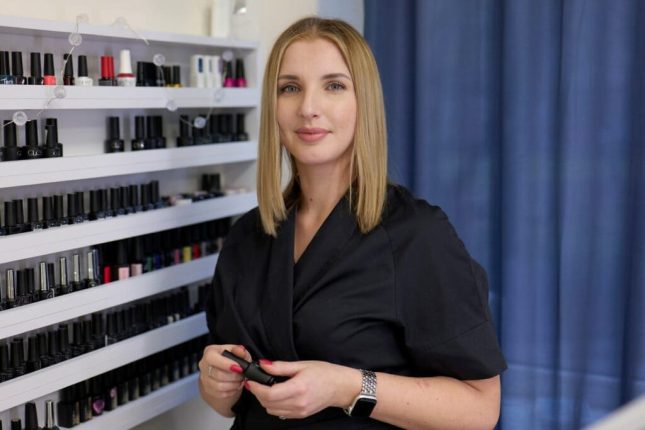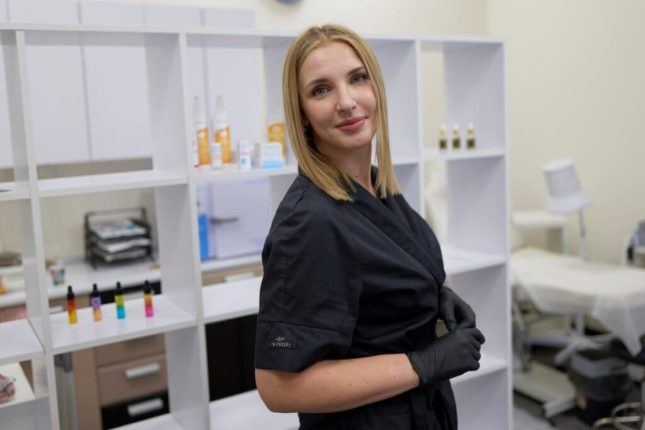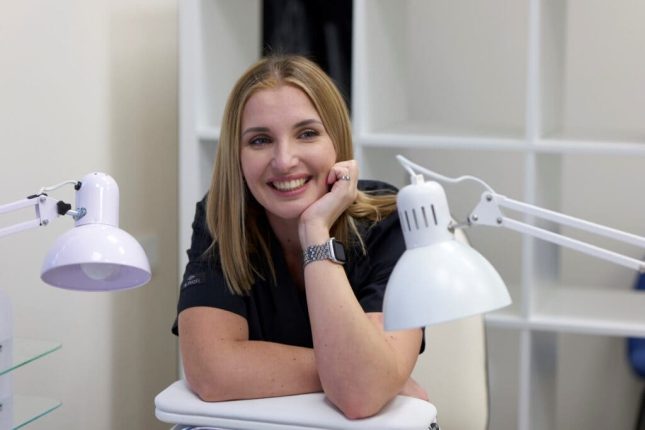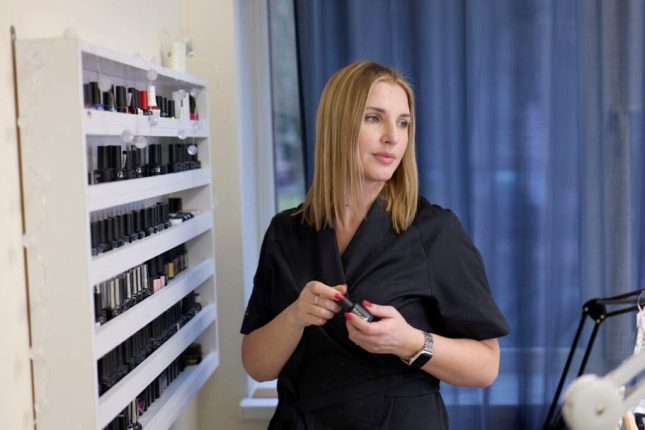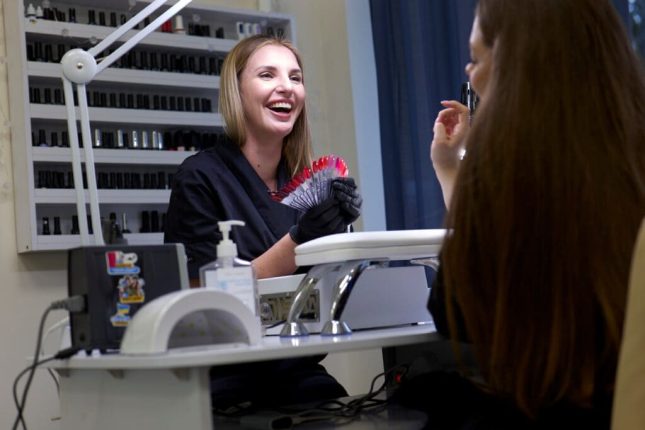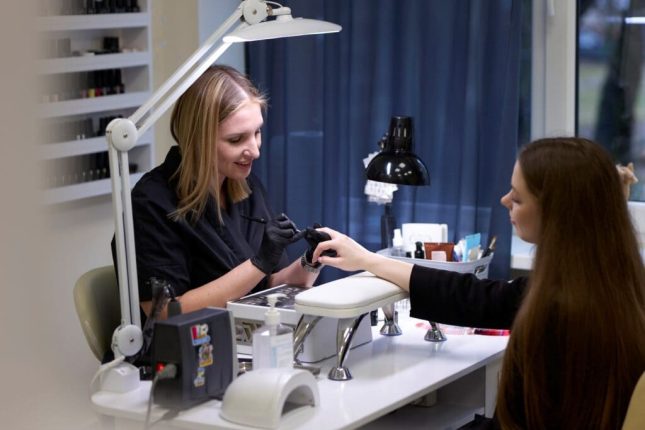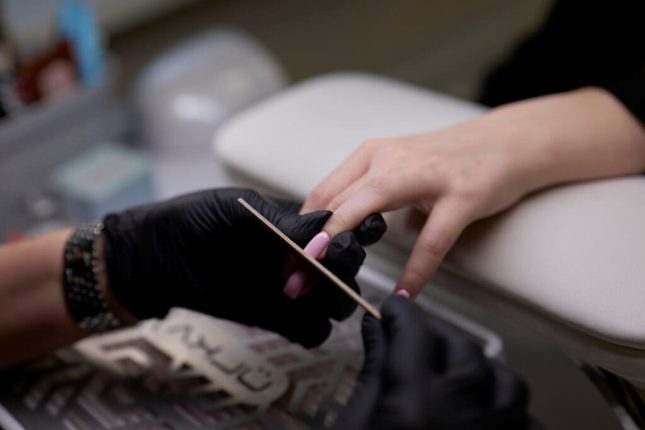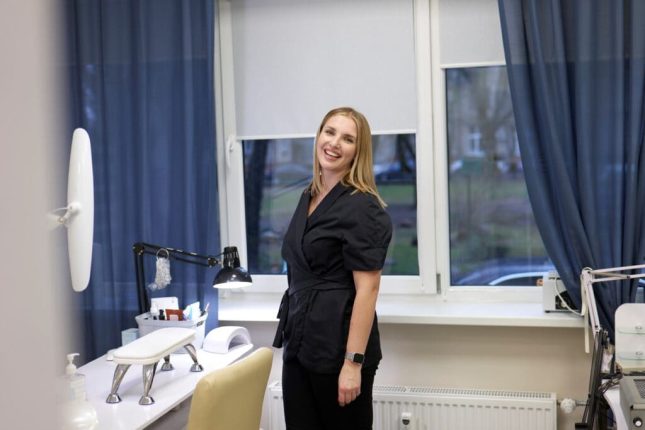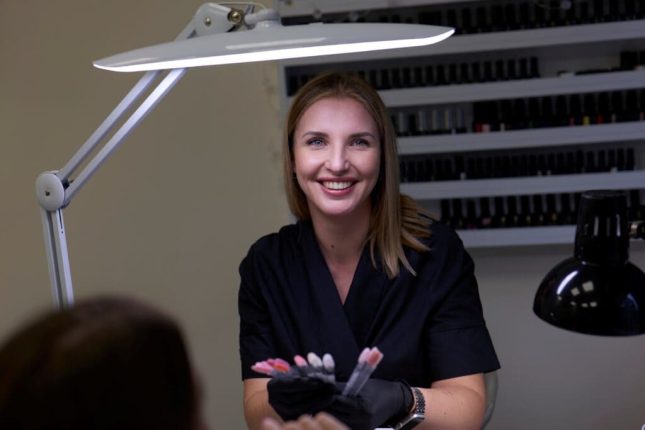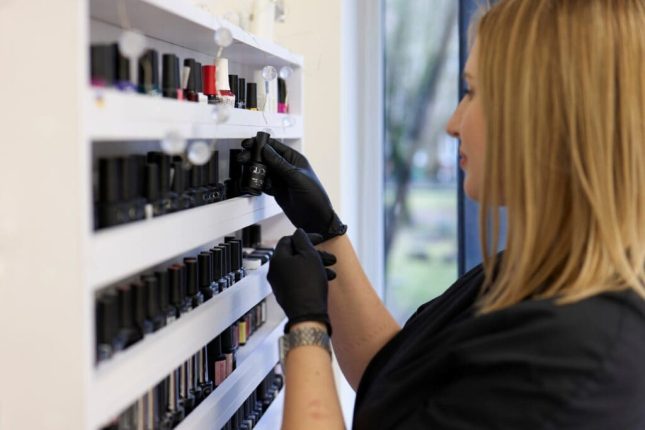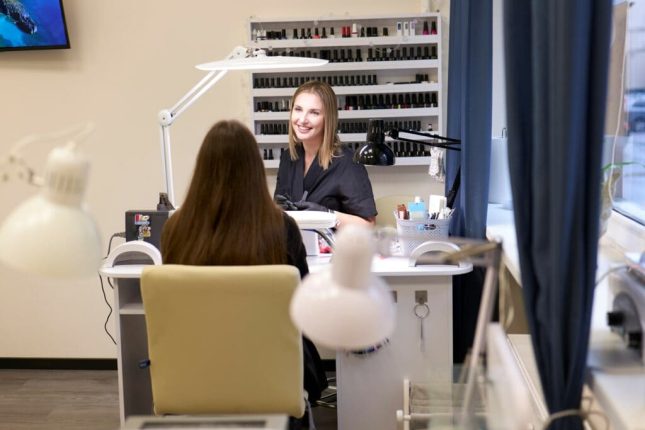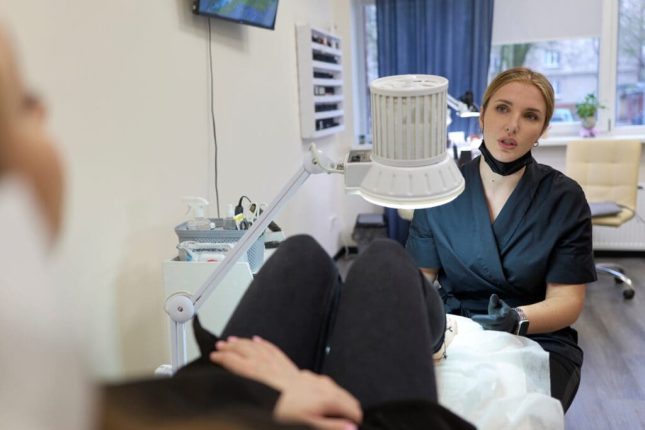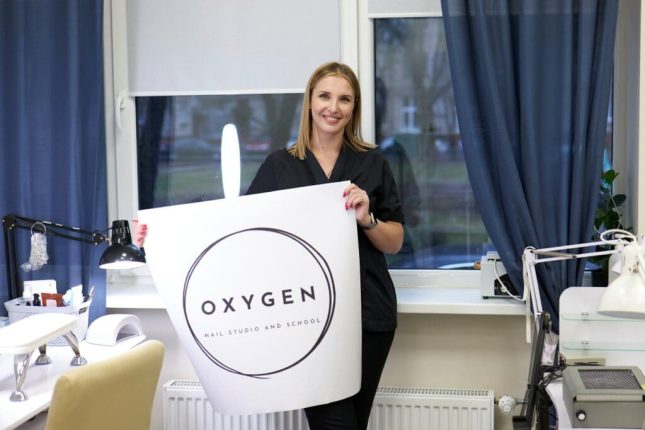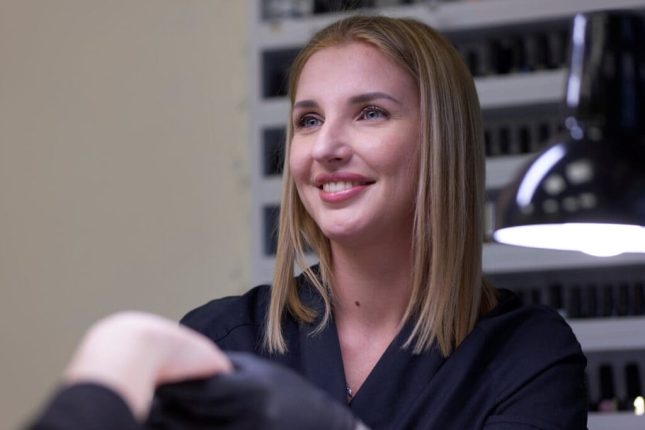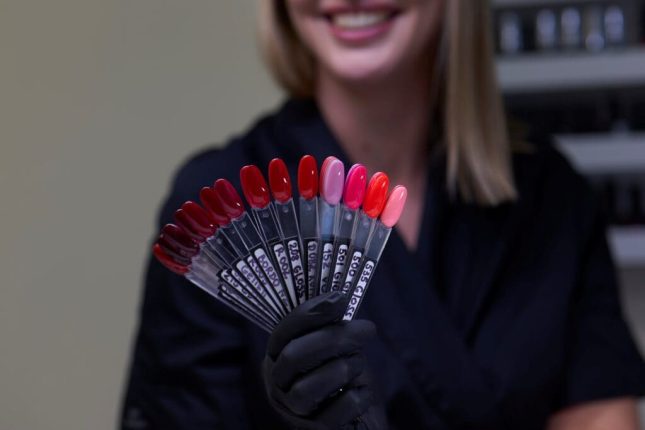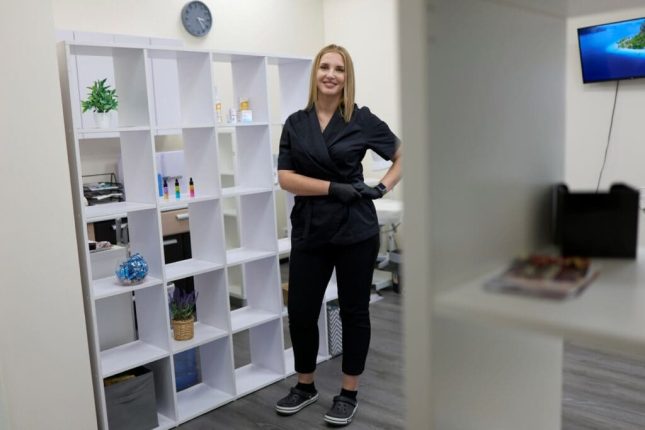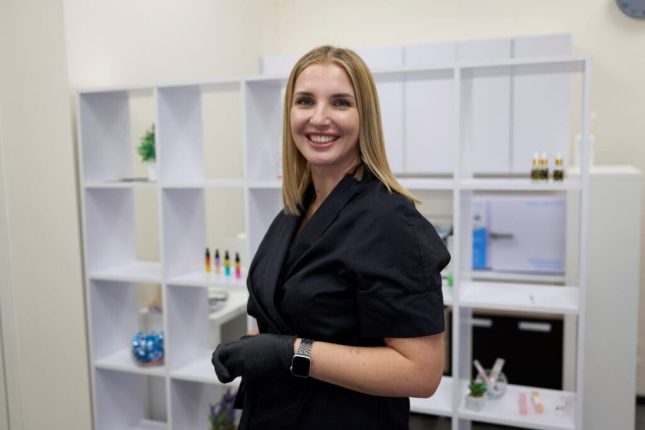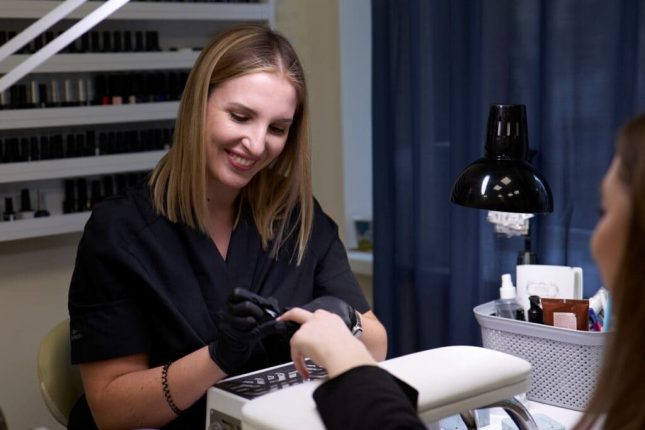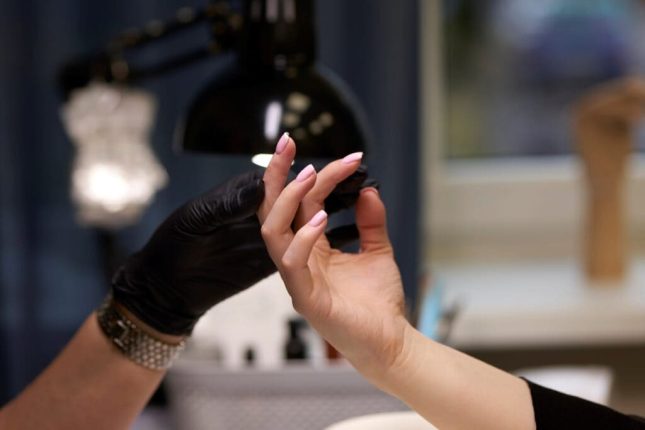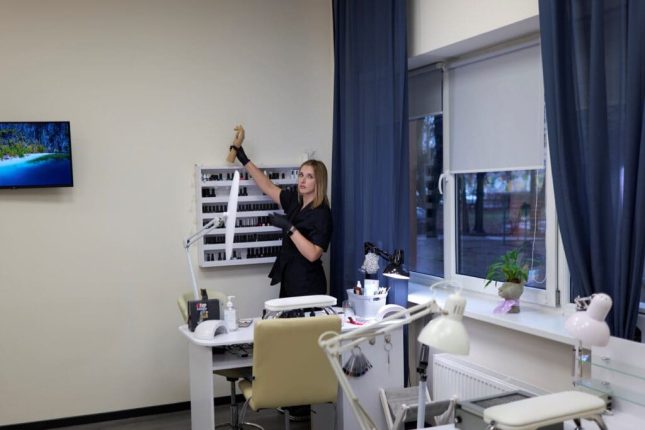
Natalia wanted her child to escape the war: how a single mother set up a successful business in Lithuania
08/03/2024
The Erasmus for Young Entrepreneurs programme helped Natalia Deineko from Zaporizhzhia start her life from scratch – far away from the air-raid sirens and explosions. The single mother quickly adapted to a new environment and got to work in Lithuania. And now, she is the owner of a salon in Kaunas, Lithuania.
When Russia began its full-scale invasion of Ukraine in 2022, 34-year-old Natalia and her seven-year-old daughter Oksana decided to flee the country to Lithuania to be far away from the military action. At that time, the woman couldn’t imagine she would be able to run a successful business in an EU country.
A crucial decision in her life
Natalia has eight years of professional experience in the beauty industry. On 24 February in the morning, she was preparing for work as usual. She was stunned when she received a message from a client asking if she should come for a manicure, because war had started in the country. When Natalia turned on the news, she couldn’t believe what was happening. However, the woman loved her work so much that she still went to work, even on the day when the full-scale invasion began.
“On 24 February, I spent the whole day removing gel polish from my clients’ nails. I realised all the horror of what was happening when I was back home. My daughter and I moved to my parents’ house and didn’t leave it for several days,” Natalia recalls.
She will never forget a column of Ukrainian tanks driving through the main square of Zaporizhzhia. At that moment, Natalia realised that her reality had changed forever. The woman wanted to take her child to a safe place. So, on 5 March, she decided to leave Ukraine, and this was a crucial decision. Oksana’s father called his friends in Lithuania, and they agreed to host the woman and her child.
Disappointment and hope
However, in the Lithuanian city of Kaunas, Natalia felt disappointment – another family from Zaporizhzhia had come to Oksana’s father’s friends, so, there was no room for Natalia and her daughter. The woman and her child were able to stay for a few days, but they soon had to find another place to live, because the small apartment was cramped for eleven people. Natalia was in despair. She had hoped that she would finally be able to take a breather after a difficult journey and didn’t expect a new challenge.
On 11 March, Natalia registered with the volunteer organisation ‘Stiprūs kartu’ (‘Strong together’), which enrolled Lithuanians willing to host Ukrainian families in their programme. And a few days later, the women and her daughter were hosted by a Lithuanian family.
“We were welcomed like their family. They gave us a separate room, a new bedding, and clothes, since it was already spring, but we had travelled in winter. They arranged a banquet for us. We talked about what had happened and we cried together,” says Natalia.
Natalia looked for a job at a factory and couldn’t even dream of returning to her favourite occupation. But her host family helped her to prepare the documents she needed to register as self-employed, and she was able to start working as a manicurist and pedicurist at a beauty salon. In three weeks, the Lithuanian family helped Natalia find an apartment and lent her money to rent it, and the woman started a new life.
The owner of the salon, Ieva Malukiene, raised funds to procure materials for Natalia, which she could use in her work. But it was not enough Ieva suggested to Natalia to master the Japanese manicure – a procedure that was rapidly gaining popularity across the world and didn’t require large costs.
Joining the Erasmus for Young Entrepreneurs programme and moving toward her dream
It so happened that Simona Simulytė, head of the Erasmus for Young Entrepreneurs programme in Lithuania, was one of Natalia’s clients. She told the Ukrainian woman about the exchange programme for entrepreneurs and invited her to join it. At that time, the application terms for Ukrainians were simplified: Natalia didn’t have to prepare a lot of documents, since she was residing in Lithuania.
Erasmus for Young Entrepreneurs is an EU-funded cross-border exchange programme which gives new or aspiring entrepreneurs the chance to learn from experienced entrepreneurs running small businesses in another country. The new entrepreneurs receive monthly financial assistance, depending on their host country, learning new skills and experience, while experienced host entrepreneurs can benefit from fresh and innovative perspectives on their business from their younger guest.
Natalia initially had her doubts, because involvement in the project required significant efforts. However, the owner of the salon where she worked agreed to be her host entrepreneur in the programme and assured that she would help her with everything.
Thus, Natalia started a new active stage in her life. To join the programme, she had to develop a business plan in English and a business strategy for six months, and make a presentation. Natalia highlighted her entire professional path and the objective she would like to achieve.
“I’m very happy that I have participated in the Erasmus for Young Entrepreneurs programme. It taught me discipline. I had to strictly follow my own business plan and implement all its items. I made photo shoots of my work, established contacts with suppliers, and actively managed my social media,” says Natalia.
Natalia talked about her work on Instagram and got many Lithuanian clients. Women came to the Ukrainian refugee to support her in tough time and then became her regular clients. This helped Natalia learn about their culture and tastes. For example, Ukrainian women often choose bright manicures, while Lithuanian women prefer soothing colours.
Every two weeks, Natalia made a video report and talked about her progress, and every month, she called the head of the programme in Ukraine and reported on her work. At the end of the project, she fulfilled her dream – she organised a training on Japanese manicure for other nail artists.
The programme helped Natalia set up her own salon
The programme also allowed Natalia to learn how to keep accounting records in an EU country, giving her skills and knowledge to run her own business. Saving most of the monthly allowance she received during the exchange, the young Ukrainian then used her savings to set up her own salon once the exchange was finished.
Overcoming the language barrier was the most difficult thing for Natalia. Most employees at government offices only speak Lithuanian. In view of this, Natalia enrolled for a language course. Now, she can understand Lithuanian, though she is still working to improve her speaking skills.
Natalia says the project helped to her discover abilities she didn’t even know about. Whenever it was difficult for her to deal with the project, her small daughter supported her. Natalia’s child is the person who motivates her the most. For her sake, Natalia is ready to study and work hard.
Now, Natalia wants to become a host entrepreneur for a Ukrainian woman and share her experience and knowledge on running a business in an EU country. She dreams of developing a successful online manicure course.
Simplified application terms from Ukrainians
To apply for the Erasmus for Young Entrepreneurs programme, a candidate has to select an intermediary organisation. Alfred Nobel University is one of the intermediary organisations in Ukraine.
Dmytro Kyrpa, a national expert of the Erasmus for Young Entrepreneurs programme, says that since the start of Russia’s full-scale invasion, Ukrainians have been offered simplified terms to apply for the programme. In particular, the programme is also open for Ukrainians who left Ukraine after 24 February 2022.
In total, since the start of Russia’s full-scale invasion, Alfred Nobel University has acted as an intermediary organisation for 44 programme participants.
Dmytro Kyrpa says that according to the programme’s eligibility criteria, new entrepreneurs have to have less than three years of experience in running a business. New entrepreneurs planning to set up their own business can also apply for the programme. For example, if you dream of setting up a café but don’t know how to run a business you can apply for the programme. If you have your business plan, you can benefit from the unique opportunity to acquire basic knowledge and skills from an experienced entrepreneur in a European country.
How to apply for Erasmus for Young Entrepreneurs
First of all, you have to study the Programme Guide, which is available here. If you have any questions, you can read the answers to the frequently asked questions here.
To apply for the programme, you have to register via the website. On the registration form, you have to state your personal data, the current sector of your activity, and an intermediary organisation that will act as your local contact point throughout the programme and help you prepare for your exchange. There are ten intermediary organisations in Ukraine. They are available here.
Moreover, in the registration form, you have to answer the following questions:
- Why do you wish to participate in the Erasmus for Young Entrepreneurs programme? What are your expectations for the exchange?
- How will staying with a host entrepreneur abroad help you develop your own business?
- Have you worked or studied abroad before? How do you plan to prepare yourself for your stay with a host entrepreneur?
- What added value can you provide to your envisaged host entrepreneur? Why should a host entrepreneur choose you?
You also have to upload your CV and a business plan. Then an intermediary organisation will check this information and make amendments if needed.
Finally, you will communicate with a host entrepreneur, further develop your business plan, and sign documents for the exchange.
Author: Sofiia Minjosa
Stories
-
Katarina Mathernova: If Ukraine had a human face and a human spirit, it would be 10-year-old Roman Oleksiv
-
A regional mission to drive social entrepreneurship: the story of Ksenia Kosukha
-
EU restores safe water supply for 100,000 Ukrainians affected by war
-
Promoting IT during the war: Lviv IT cluster and how EU4Digital helps
-
Frontline digitalisation: Kharkiv IT Cluster collaborations
-
How EU4Youth is driving opportunity and success among young Ukrainians
